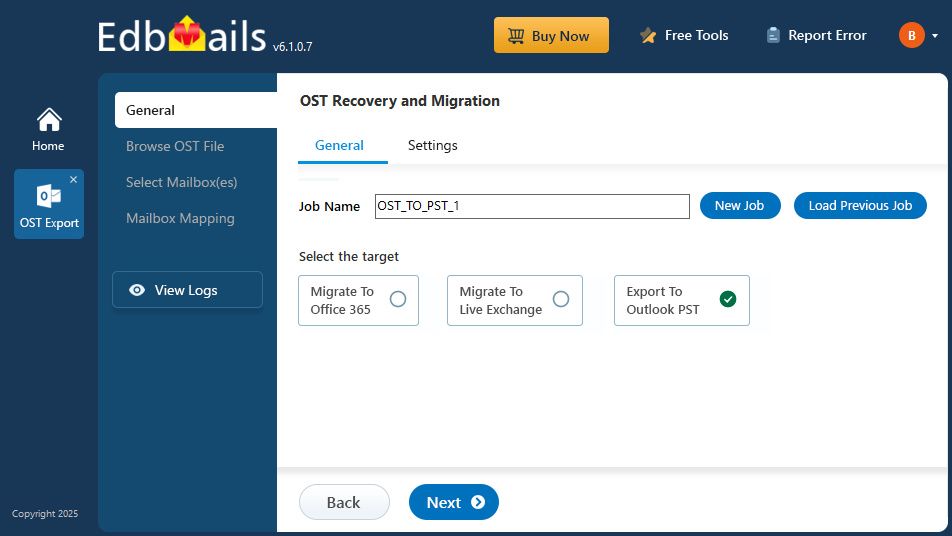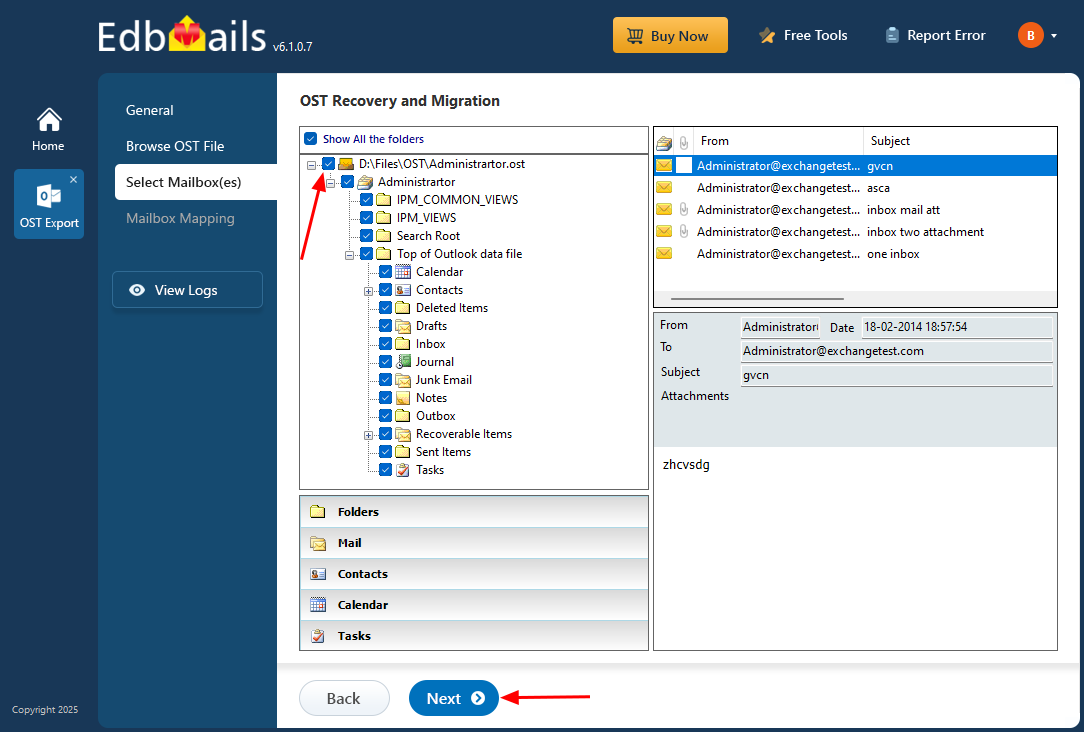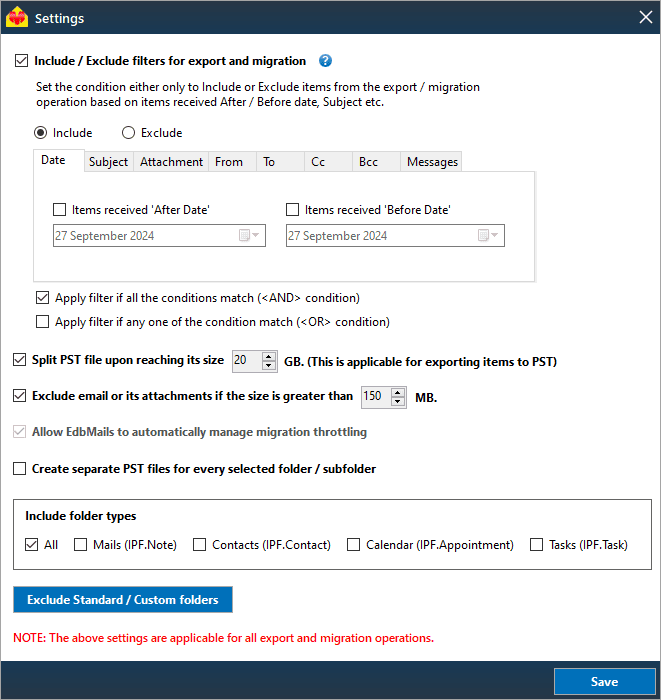Granular recovery of OST file and export OST to PST
Granular email recovery is the process of restoring specific items—such as individual emails, attachments, or folders, without needing to recover the entire mailbox or perform a full system restore. Unlike traditional recovery methods, which often require extensive time and resources, granular recovery focuses only on the missing or damaged data. This reduces downtime, saves storage space, and ensures that users can quickly regain access to what’s most important.
This method is especially useful when only a small portion of data is affected—for example, if a folder becomes corrupted or an email is accidentally deleted. Instead of restoring everything, administrators can selectively recover just what’s needed, making the process faster, more efficient, and less disruptive to ongoing operations.
EdbMails OST recovery software takes granular recovery a step further by allowing you to extract deleted, inaccessible, or orphaned folders from OST files with ease. It goes beyond conventional methods by enabling accurate, reliable, and quick restoration, helping you recover critical Outlook data without relying on the original mailbox or Outlook installation.

Advantages of Granular OST Data Recovery
- Time-saving recovery: Granular OST data recovery enables the quick restoration of only the necessary items, significantly reducing the time needed compared to full mailbox recovery. This targeted approach ensures that businesses can get back on track faster, minimizing downtime.
- Storage efficiency: By restoring only specific data, granular recovery minimizes the need for excessive storage. Unlike traditional methods that require full mailbox restoration, it conserves valuable storage resources, making the recovery process more efficient and scalable.
- Minimized system disruption: Granular recovery reduces system disruption by focusing solely on the affected data, allowing other system functions to continue without interference. This approach prevents unnecessary downtime and helps maintain the overall productivity of the organization.
- Cost-effective solution: Granular recovery helps save on costs by restoring only the critical data that is needed, reducing the resources spent on full system restores. This efficient use of resources makes granular recovery a cost-effective solution for businesses of all sizes.
- Increased flexibility: Granular OST data recovery provides greater flexibility by allowing the restoration of individual emails, attachments, or folders. This flexibility gives users more control over what is restored, ensuring they can recover exactly what’s needed without unnecessary complexity.
EdbMails’ granular OST Recovery and export feature streamlines the OST to PST conversion process, offering precision and efficiency. This approach ensures a seamless recovery experience, making it an ideal solution for professionals and individuals alike.
How to recover OST files Granularly with EdbMails
EdbMails OST Converter is built to recover Outlook OST data with precision. Whether the file is corrupted, orphaned, or simply inaccessible, the tool enables granular recovery and allows you to export data directly to a PST file. It supports OST files from all major Outlook versions, including 2021, 2019, 2016, 2013, 2010, and 2007. This granular recovery technology recovers even the smallest data from an Outlook OST file.
By default, EdbMails retrieves all mailbox items from an OST file. However, you can choose to export only specific emails, folders, or subfolders using the application's intuitive tree-view interface. This targeted approach ensures you recover exactly what you need—nothing more, nothing less.
To export emails based on specific criteria, use the include/exclude filters in the Settings. To export emails based on specific criteria, use the include/exclude filters in the Settings. You can filter items by ‘Sent and Received Date’,‘From’, ‘To’ ‘CC’, ‘BCC’ ‘Subject’ and ‘Attachment Name’, Read / ‘Unread status of the messages’.




